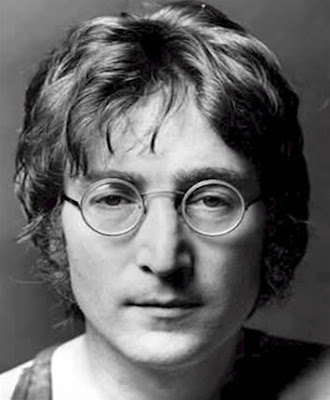Atheists vs. Agnostics vs. Religionists - Or are they all the same?
 Much has been made recently about the potential dangers of religious zeal and fervor. Though it is not a new subject by any means, as there has been conflict between thinking and believing since the beginning of the written word.
Much has been made recently about the potential dangers of religious zeal and fervor. Though it is not a new subject by any means, as there has been conflict between thinking and believing since the beginning of the written word.Even before the enlightenment more than 300 years ago, when science began to crush many commonly held beliefs like 'the world is flat' or that we weren't meant to fly, philosophers considered every position that came to conclusions without sufficient evidence to be invalid and delusional while others saw fit to kill millions in the name of God if they refused to believe the way they did.
 There was a very pacifist atheist movement that seemed to peak in the '60s, exemplified by John Lennon whose song, Imagine, stated an aspiration for a world where people walked 'hand in hand' and had no religion. That generation seemed satisfied with feeling intellectually superior to those who lived by faith.. These anti-establishment figures seemed to accept 'live and let live' as their mantra.
There was a very pacifist atheist movement that seemed to peak in the '60s, exemplified by John Lennon whose song, Imagine, stated an aspiration for a world where people walked 'hand in hand' and had no religion. That generation seemed satisfied with feeling intellectually superior to those who lived by faith.. These anti-establishment figures seemed to accept 'live and let live' as their mantra.With the rise of the sexual revolution and drug experimentation, the right wingers worldwide decided they had to act affirmatively, not only within the confines of the church but to re-cross the line into government. The US seemed to be the place where this would least likely happen as there was a strong statement of belief in separation of church and state. But in the early eighties, we saw the rise of a disease that not only inconvenienced the sexually active, but killed them.
 People like Jerry Falwell proclaimed AIDS had been sent by God to punish sinners. A thunder on the right made a minority of very loud evangelicals believe they were actually a majority, the "Moral Majority". They convinced enough people in the middle that conservatism was a good idea whether religiously inspired or not. Reagan was elected only 4 years after the fall of Nixon, and though he was nowhere near religious, he traded on the terminology of faith and managed to attract people from both the right and middle.
People like Jerry Falwell proclaimed AIDS had been sent by God to punish sinners. A thunder on the right made a minority of very loud evangelicals believe they were actually a majority, the "Moral Majority". They convinced enough people in the middle that conservatism was a good idea whether religiously inspired or not. Reagan was elected only 4 years after the fall of Nixon, and though he was nowhere near religious, he traded on the terminology of faith and managed to attract people from both the right and middle.AIDS was initially thought to be simply sexually transmitted, but soon they discovered it could be transmitted through other means. This factor slightly quietened people like Falwell, but a huge new generation had already sprung forward, reacting to this biological imperative that was perceived to threaten the very continuation of the species. Resultantly, conservative, pro-big business, religious flag wavers, literally swept away a huge Democratic lead in the US legislature which had held since FDR.
 If the 60's and 70's were a 'sexual' revolution, the 80's and 90's have been a 'fear' revolution, as the right began to reverse many freedoms and to prevent others from ever coming about from race to reproductive to marital rights. Despite the election of Democrat, Bill Clinton, there was still a deep undercurrent of religiously driven conservatism. But both sides liked Clinton as he sounded like a Southern preacher, but demonstrated his intelligence as a Yale-Rhodes scholar. He and his Yale lawyer wife seemed to be taking America and the world back toward the middle.
If the 60's and 70's were a 'sexual' revolution, the 80's and 90's have been a 'fear' revolution, as the right began to reverse many freedoms and to prevent others from ever coming about from race to reproductive to marital rights. Despite the election of Democrat, Bill Clinton, there was still a deep undercurrent of religiously driven conservatism. But both sides liked Clinton as he sounded like a Southern preacher, but demonstrated his intelligence as a Yale-Rhodes scholar. He and his Yale lawyer wife seemed to be taking America and the world back toward the middle.His presidency came to symbolize the conflict between religion and thought, values and results. And despite the results Clinton achieved in every category, the prevailing notion that conservatives continued to push was that religious values were more important than social and economic justice.
By this time, the atheists were no longer comfortable with a sense of intellectual superiority, but they began to affirmatively organize and frankly achieved a level of evangelical zeal equal to the religious right, though admittedly in smaller numbers.
 With both sides feeling cornered and threatened, politics has become more and more polar. Though strange bedfellows, the atheists and other minorities formed an alliance against well-organized and funded right. The advantage the right had over the left was that there was a commonality of Christianity. Though lacking fervor, they were homogeneous. The right wing had convinced moderate Christians you had to be an atheist/communist /"pinko-fag" if you were voting for anyone other than those whom God had endorsed from the right.
With both sides feeling cornered and threatened, politics has become more and more polar. Though strange bedfellows, the atheists and other minorities formed an alliance against well-organized and funded right. The advantage the right had over the left was that there was a commonality of Christianity. Though lacking fervor, they were homogeneous. The right wing had convinced moderate Christians you had to be an atheist/communist /"pinko-fag" if you were voting for anyone other than those whom God had endorsed from the right.Now with a conservative Christian (in name only) as President, proclaiming a mission to attack the 'axis of evil', in response to what he conveniently considered Christianity vs Islam (and everybody else), the right-wing had the US government there to officially advance their mission.
"You're either with us or against us," became the war-cry for George W. Bush, but it went further than foreign wars but resounded a sense that part of America had been disenfranchised and world opinion had been ignored.
Atheists began to speak with greater zeal than ever. They were angry. Websites and even "churches" of Atheism began to demand equal access to the pulpit. Armed with their heroes, Albert Einstein, Carl Sagan and now, Richard Dawkins and Christopher Hitchens have formalized their attack. And with the apparent failure of Bush's religious war they are feeling muscular and vocal. Hitchens morphed from a gentle, open minded, concerned academe, to a hell-fire and brimstone evangelist, with the same angry fervor as Bush. Hitchens even resoundingly celebrated the recent death of Jerry Falwell saying, "If there were a hell, Falwell would be there now."
Many atheists now are on a mission to remove what they consider a danger to society, ignorant religiosity. They truly believe we must act now to prevent the Religionists from committing new genocides in the name of God.
Now, we have both sides screaming at each other and the middle looking for an escape. Moderate Christians came back toward the middle and elected Democrats and began to exhibit tolerance for those with whom, in some cases, they differed spiritually. Meanwhile, now there is a resurgence among atheists who separate themselves from the extremists among them by calling themselves "agnostic" (not-knowing).
Please watch these films to get a sense of where Dawkins began and where he is now.
The premise in this introductory chapter, SLAVES OF SUPERSTITION, of a British TV series, ENEMIES OF REASON, is that society appears to be retreating from reason. Apparently harmless but utterly irrational belief systems from astrology to New Age mysticism, and clairvoyance to alternative health remedies, are booming. Evolutionary biologist Professor Richard Dawkins confronts what he considers an 'epidemic of irrational, superstitious thinking'. He considers 'the dangers the pick and mix of knowledge and nonsense poses in the internet age', and passionately re-states the case for reason and science.
48min2sec
Here, Dawkins asserts that belief in a god is irrational and inflicts great harm upon societies. BBC's Jeremy Paxman interviews Professor Dawkins about "The God Delusion".
9min35sec
Most recently, Hitchens' celebration of the death of Falwell. Watch as Hitchens demonstrates what EXACTLY Jerry Falwell is and stood for, a malevolent bigoted bully:
9min45sec
Most have seen plenty of examples of extreme religious zealots, so I will avoid supplying examples of the hatred expressed by those who profess love in all religions.
However, often misunderstood and mischaracterized, there are many peace-loving Muslims. This film, THE COLLAPSE OF ATHEISM is presented by a highly cross-denominational Turkish Muslim, Harun Yahya and is one of a series of religious films. However, this one should not be mistaken as evangelical in that it simply offers one of the most reasoned presentations of creationism and a long series of debunking of what through time, have been accepted scientific principals.
40min35sec







